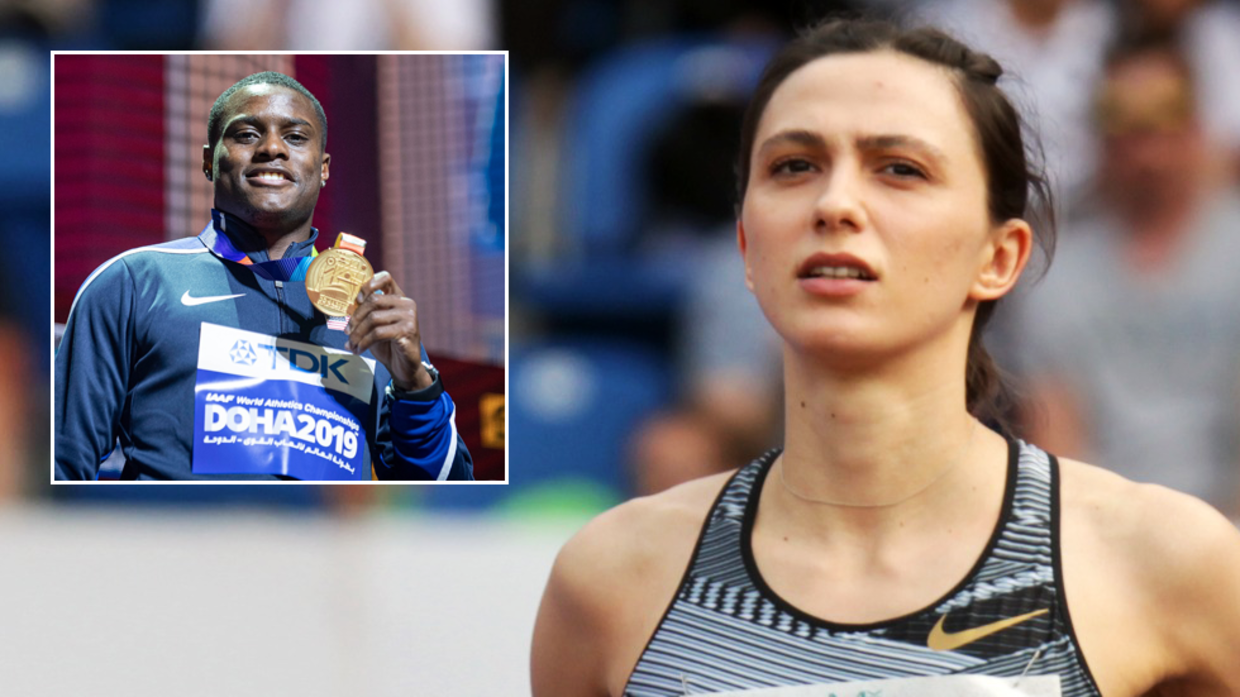Russian world champion high jumper Maria Lasitskene has hit out at athletics chiefs over the decision to drop doping charges against US sprinter Christian Coleman, who missed three tests in a row.
The 26-year-old Russian, who won her third consecutive world title on Monday, was forced to compete under neutral status after the International Association of Athletics Federations (IAAF) decided to extend the disqualification of the Russian Athletics Federation (RUSAF).
Russian competitors have been performing without national symbols for over four years, after the IAAF imposed a ban on the Russian athletics body over alleged doping violations.
Lasitskene, who received her gold medal at the ongoing World Champions in Doha without the backdrop of a flag or national anthem, was outraged with what she sees as double-standards over US 100m star Coleman.
“My jaw dropped down to the floor when I learnt that Coleman was justified. But when I heard Mr. Coe’s (IAAF president) reaction, my jaw dropped even lower,” Lasitskene said over the decision to allow Coleman to compete in Qatar.
Also on rt.com Top US sprinter Coleman cleared of doping charges despite missing 3 tests“What are we fighting for, guys? Where are we going? The man missed doping tests and doesn’t hide it. He was unavailable for doping officers and now he is the world champion! Now he is a new face of athletics. Is it a joke?” Lasitskene fumed.
The first woman in history to win three high jump world titles also stressed that the IAAF and international doping agencies had been less reserved in their treatment of Russian athletes and Russian anti-doping agencies, immediately banning them even on the slightest suspicions of doping.
“Every time I hear [Coleman’s] name my jaw drops. Why do we need this anti-doping fight then? Where are all those athletes commissions who immediately signed papers urging not to restore RUSADA?” Lasitskene said.
The newly-crowned 100m world champion Coleman could have faced a two-year ban after missing three doping tests over a one-year period. However, the US anti-doping watchdog dropped the charges against the runner, stating that his whereabouts violation was “for a filing failure.”

